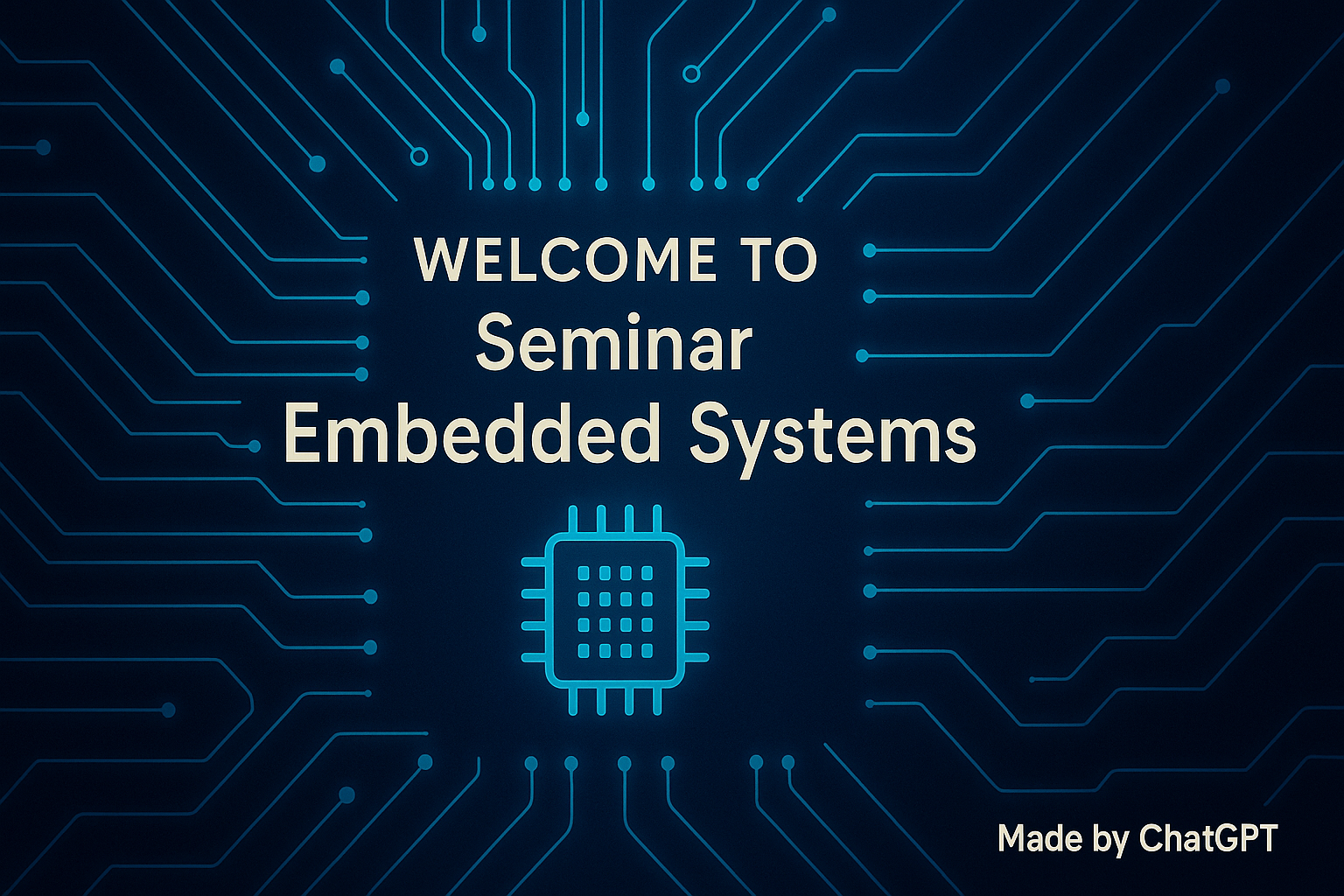- Dozent/in: Jessica Knaub
- Dozent/in: Roman Obermaisser
- Dozent/in: Stefan Otterbach
- Dozent/in: Pedro Lazaro Peraza Gonzalez
The "Embedded Artificial Intelligence" course offers an in-depth exploration into the integration of artificial intelligence (AI) capabilities directly into embedded systems. This advanced course is tailored for students and professionals keen on harnessing the potential of AI at the hardware level, ensuring streamlined and efficient computation for AI-driven tasks.
Key Components:
-
Hardware Accelerators for Standalone Compute: Dive into the realm of dedicated hardware components designed to boost the computational power of standalone systems. Understand their significance and learn how they enhance the performance of AI applications, making real-time AI processing achievable.
-
FPGA Platform for AI Acceleration: Investigate the use of Field Programmable Gate Arrays (FPGAs) as a dynamic and reconfigurable solution for AI tasks. This module will shed light on the unique advantages of FPGAs in AI acceleration, including flexibility, customization, and power efficiency.
-
Architecture and Datapath of AI Accelerators: Delve deep into the structural and functional aspects of AI accelerators. Gain insights into the architectural design and data flow patterns that are integral to these specialized hardware components. By grasping these foundational concepts, students will be better equipped to optimize AI accelerator performance.
-
Software and Hardware Co-design for AI Accelerators: Embark on a holistic journey, bridging the gap between software algorithms and hardware implementations. Understand the intricate process of co-design, wherein software and hardware components are developed in tandem, ensuring maximum compatibility, efficiency, and performance.
Throughout the course, learners will not only absorb theoretical knowledge but also gain hands-on experience, applying concepts to real-world scenarios and challenges. Upon completion, participants will be well-prepared to spearhead advancements in the rapidly-evolving domain of embedded AI, paving the way for smarter and more efficient embedded systems.
- Dozent/in: Aravinda Lasya Indukuri
- Dozent/in: Fatima Mammadova
- Dozent/in: Ugonna Oleh
- Dozent/in: Charles Onuoha
- Dozent/in: Daniel Onwuchekwa
- Dozent/in: Josepaul Paulachan
- Dozent/in: Jessica Knaub
- Dozent/in: Roman Obermaisser
- Dozent/in: Stefan Otterbach
- Dozent/in: Ferdinand Pfeifer
- Dozent/in: Abdulmajeed Alhumaidi
- Dozent/in: Yosab Wagdy Rashed Bebawy
- Dozent/in: Robin Kim Ream Kuhnhenne
- Dozent/in: Roman Obermaisser
- Dozent/in: Josepaul Paulachan
- Dozent/in: Utkarsh Raj
This course provides the students with the needed knowledge and skills for the development of embedded systems using FPGAs. In this course, the students get familiar with the fundamentals of embedded systems and FPGAs. They learn how such systems are designed and how the hardware and software for such systems need to be developed.
This course is composed of lectures and lab sessions, in which the students have the opportunity to work with real examples and experiment the knowledge that they have acquired during the lectures.
- Dozent/in: Abu Shad Ahammed
- Dozent/in: Rashed Al Amin
- Dozent/in: Roman Obermaisser
- Dozent/in: Veit Wiese

Seminar-Veranstaltung mit unterschiedlichen Themen aus dem Bereich Embedded Systems
- Dozent/in: Fatima Mammadova
- Dozent/in: Roman Obermaisser
- Dozent/in: Josepaul Paulachan
- Kontext und Anforderungen eingebetteter Echtzeitsysteme
- Komplexität
- Modellierung eingebetteter Echtzeitsysteme
- Globale Zeit und zeitliche Relationen
- Dependability
- Echtzeitkommunikation
- Echtzeitbetriebssysteme
- Real-Time Scheduling
- Interaktion mit der Umgebung
- Design eingebetteter Systeme
- Validierung
- Internet of Things
- Beispiele von Systemarchitekturen für eingebettete Echtzeitsysteme
- Dozent/in: Roman Obermaisser
- Dozent/in: Utkarsh Raj